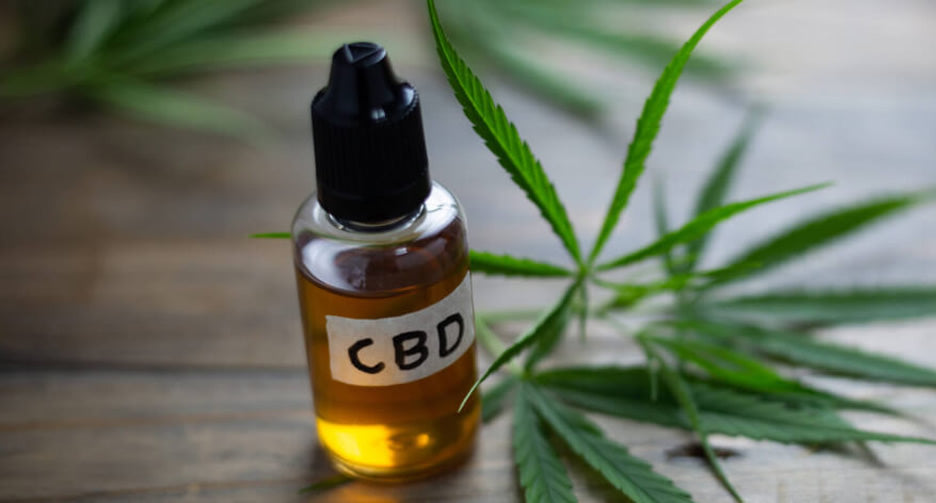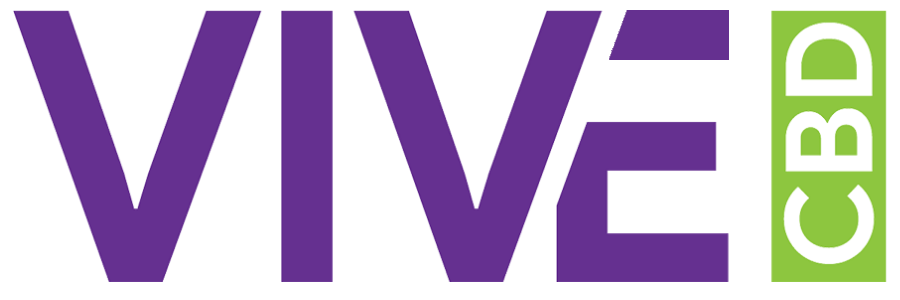
Have you been wondering what CBD stands for? Or what its effects on the brain could possibly benefit you once you tried it? The cbd effects on brain health are significant, offering potential improvements in mental clarity and focus.
Well, you've come to the right place to get answers to your questions.
Here at ViveCBD, we take a lot of pride in the fact that we not only make the best broad-spectrum CBD products on the market today for adults and pets, we also consider ourselves real experts in CBD science and cbd uses. Our expertise extends to understanding the cbd effects on brain health, offering insights into how CBD can support overall wellness. The cbd effects on brain function are a key area of study, highlighting how CBD can positively influence mental clarity and focus. Additionally, comparing cbd vs thc is crucial for understanding the unique cbd health benefits and cbd brain effects.
Have you noticed how there are now CBD stores everywhere you look? This surge highlights the growing interest in cbd brain effects and the positive cbd effects on brain health.
You're not alone. There is a CBD retailer on just about every corner now in the United States. Today, with 67% of Americans supporting legislation that would legalize marijuana, the CBD industry has grown by leaps and bounds.
CBD 101: CBD vs THC
Over the last 3-4 years CBD has gone from being labeled as a negative "gray" area product that many have claimed has the same psychoactive effects as marijuana, to today being recognized as an important alternative therapy.
Unlike "mary jane", CBD doesn't have the same psychoactive properties as marijuana. Instead, when used daily, CBD products may offer anyone an incredible variety of positive cbd health benefits. This distinction between cbd vs thc is crucial for understanding the therapeutic potential of CBD, emphasizing the cbd brain effects that contribute to mental wellness.
CBD and brain health: CBD has come a long way.
In fact, CBD has become so recognized today as an effective, alternative therapy product, that you can now easily explore its potential for enhancing cognitive function and overall brain health. The cbd and brain health connection is a testament to CBD's growing reputation in the wellness community.
CBD is truly everywhere in 2025!There are now CBD retailers in the strip malls that you or your family drive by highlighting the growing recognition of cbd brain effects and overall wellness every day on your way home from work or school. This visibility underscores the cbd effects on brain health and its increasing acceptance in mainstream society. (No? Well, give it a bit more time. Trust us. There will be one by the end of this year.)
The internet has grown the CBD industry.CBD is one of the most-marketed products on the internet today.It's being advertised everywhere and by just about everyone.Just visit your favorite life-hack, parenting, or cooking blog after you finish reading this article.
You'll not only find an ad and a review for a CBD product that's available for sale right now online but you'll also be treated to a link to where you can buy it. You'll also likely be given a coupon code that you can use to get an exclusive discount at the point-of-sale.
CBD, of course, is also on social media…
There are dozens and dozens of groups/communities on social media that promote the positive health benefits of CBD every day.
CBD social media groups promote daily CBD use.But, they also share their personal success stories when it comes to CBD; they share with readers about how CBD has not only helped them when it comes to finding relief as it relates to coping with stress or anxiety, they also share how CBD has also been able to offer them relief from the general aches and pains frequently-associated with the impossible pangs of aging - just ask anyone: CBD can improve the quality of one's life.
Yet with all this great information on the internet about CBD now, it can still be a challenge for anyone with a genuine interest in how CBD works, how it affects the brain when taken, etc.With CBD growing in popularity, it can be difficult to figure out what's fact and what's fiction when it comes to the real science.
In fact, when you begin to start thinking about everything that you've just read in an afternoon about CBD on the internet and social media, you can be left with more questions than answers when it comes to resolving your curiosity as to whether or not CBD is right for you.
Here's are a few commonly-asked questions about CBD online:
- What is CBD?
- What does CBD stand for?
- What are the effects/benefits?
- What does CBD do to the brain?
If you've asked any of these questions about CBD in the past, then as we said at the beginning of this article,you've come to the right place for the answers you've been looking for.
Once you've read this article you'll never need to read another thing about CBD. Because we're able to tell you what CBD is, what CBD stands for, how CBD affects the brain and about CBD's potential health benefits in a quick article that will be only a 5 min read.
What Is CBD?
CBD is one of 80-100 single, biologically-occurring, active chemical compounds in the Cannabis sativa plant which, according to the FDA (Food and Drug Administration), is also commonly known by the name Marijuana and hemp.
Here's what makes CBD different from marijuana: CBD does NOT contain delta-9-tetrahydrocannabinol (THC), the single, active, biologically-occurring compound found in Cannabis sativa, that when consumed can give users a psychoactive "high."
Once its terpenes and flavonoids are removed through extraction, the single CBD component of the Sativa plant does not in itself produce the psychoactive "high" frequently associated with THC use. Nor does it have the Sativa plant's flower's natural aroma or flavor that is too frequently associated with marijuana.
What Do The Initials CBD Stand For?
The initials CBD stand for cannabidiol. CBD is also known as Cbd. (Cbd) is the scientific abbreviation for Cannabidiol. Cannabidiol is the second most active compound in the Cannabis sativa plant after tetrahydrocannabinol or THC, the psychoactive compound of the Sativa plant.
Phytocannabinoid or cannabinoids are naturally occurring in the Sativa plant.Cannabinoid molecules make up CBD; they are extracted from the flowers of the Cannabis sativa plant. Cannabinoids, which are formed inside the Sativa plant through a process known as decarboxylation, are compounded by heat, light, and/or alkaline conditions.
Cannabinoids are single, active chemical compounds of the Sativa plant that are responsible for its potential medicinal properties. Cannabidiol can also be found in hemp and may be used as the active compound in CBD Hemp products as well.
There are both full-spectrum and broad-spectrum CBD products.Full-spectrum CBD projects may have up to as much as 0.3% THC by default.Broad-spectrum CBD products, like those sold by ViveCBD, contain the same Full-spectrum Cannabidiol compounds but they do NOT contain THC.
Cannabidiol extraction is used to create many CBD retail products on the market. Edible CBD products such as CBD tinctures, CBD oil, and hemp oil extracts and CBD edibles such as CBD cookies, CBD candy, CBD gummies, CBD honey sticks, and general CBD baked goods like CBD cornbread or Cornbread hemp, et al. are organic and made for adults and pets.
ViveCBD products are manufactured and packaged for sale online after the cannabidiol extract is expertly-infused into a variety of high-quality edible ingredients. Companies such as ViveCBD also use cannabidiol extract in non-edible products as well. All-natural lotions, creams, lip balms, bath bombs, etc. are also available for sale.
What Are The Effects / Benefits?
Studies have shown that CBD can potentially help improve a person's sleep. CBD may help people suffering from sleep disorders such as sleep apnea; CBD may help people when it comes to keeping your head on your pillow all night long as well as improve REM sleep behavior, and reduce daytime sleepiness in adults.
Studies have also shown that CBD may also help people find various states of calm who suffer from stress, central nervous system and neuropsychiatric disorders, including epilepsy, anxiety, and schizophrenia.
Known around the world, the Mayo Clinic reports that CBD may also be effective in people who suffer from nausea or nausea-related symptoms as well as those frequently-associated with other disorders and diseases like Parkinson's disease, diabetes, glaucoma and multiple sclerosis.
Even though scientific evidence is yet in its infancy, broad-spectrum CBD products appear to provide a bevy of positive health benefits to people who wish to improve their mental health and balance, their body's general state of well-being but also desire to live in a state of calm and love.
What Does CBD Do To The Brain?
One of the most important departments of the human brain is the endocannabinoid system. It helps us cope with a wide variety of issues, feelings, and situations we encounter on an average day of life on Earth.It helps us coordinate movement.
It sends pain, anxiety, and stress signals to the body.It delivers the message from our body to our brain that we are hungry.It helps us recall our most-cherished memories of the past.And it also helps out our immune system when it needs a push.
And just like the Sativa plant which has cannabinoids, our endocannabinoid system also has its very own cannabinoid receptors. Cannabinoids from the Sativa plant may act medicinally because they"produce effects in the body by interacting with cannabinoid receptors, which form part of our brain's endocannabinoid system."
Cannabinoids interact with the brain's CB1 and CB2 receptors when we take CBD.CBD stimulates our CB1 and CB2 receptors, which in turn then causes our own, natural cannabinoids inside our own endocannabinoid system to alleviate inflammation and pain, anxiety, stress, emotion, mood, etc.
CBD is no longer a controversial alternative health product. There are so many positive health benefits that can come to anyone with the daily use of CBD that it's very difficult to mention every single one of them in one very short article.
As an alternative therapy, CBD can offer a beautiful world of relief to people and pets who have no choice but to suffer through a variety of disorders, diseases, and other medical issues that unfortunately diminish the quality of their life on a daily basis
CBD may have the ability to not only give yourself or someone you love the much-needed relief that they so desperately want, but, in turn, CBD may also help you/them when it comes to truly restoring one's quality of life.
And if you have the quality of life that you desire to have every day then you're not only comfortable, you also can't help but revel in the sense of calm that also may also be running throughout your brain in the same instant.
